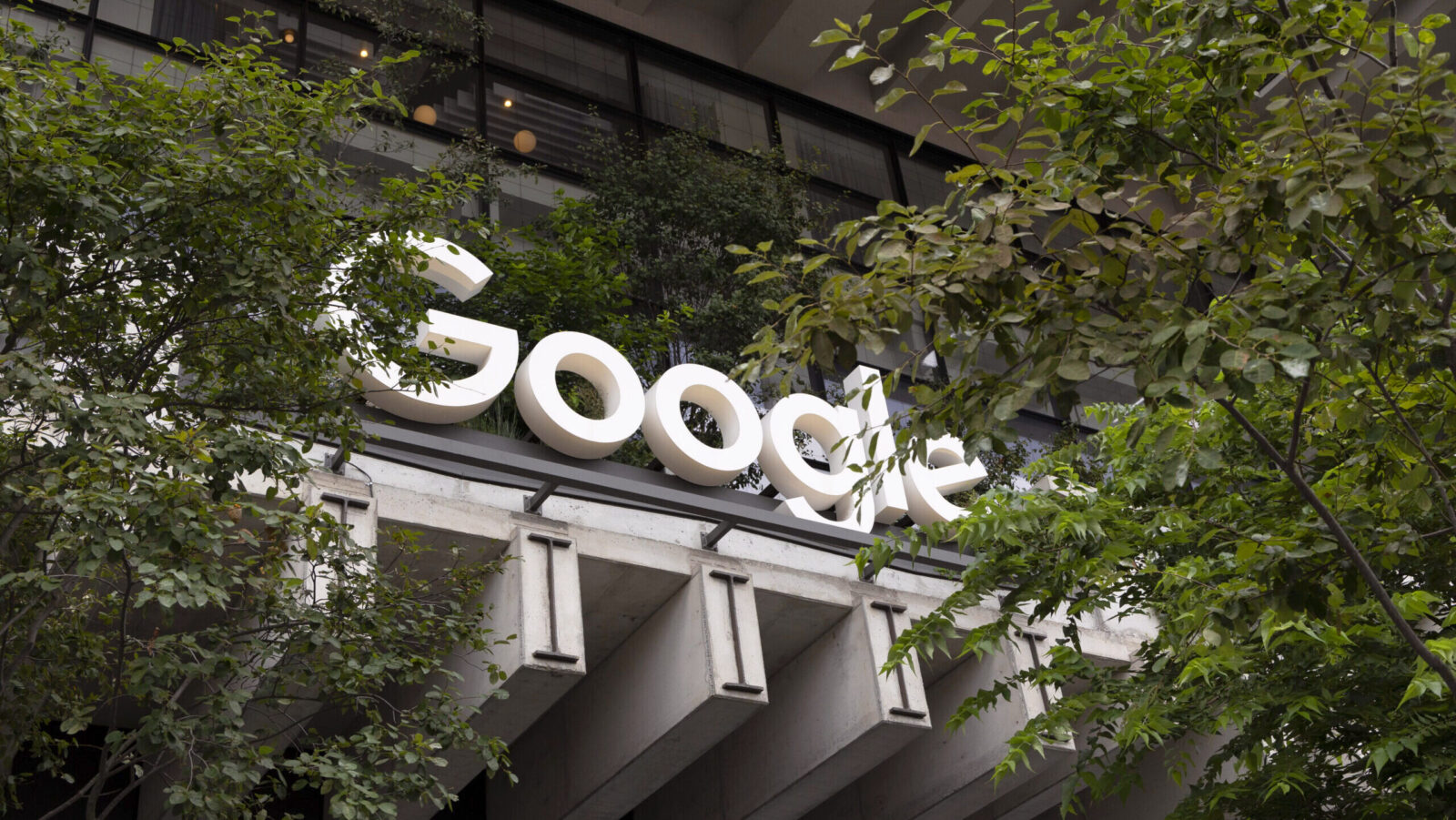Good morning.
You didn’t need to be a soothsayer to see this one coming. Oracle is part of a consortium of US investors that would take over the stateside business of TikTok under a framework being finalized by the US and China. Multiple outlets reported Tuesday that US shareholders would get 80% of the company and shareholders in TikTok’s Chinese parent ByteDance would get the remaining 20%.
Meanwhile, The Wall Street Journal and CNN reported two powerhouse Silicon Valley investors, private equity shop Silver Lake and venture capital firm Andreessen Horowitz, are also part of the consortium. According to the WSJ, under the new ownership TikTok users will be asked to change over to a new app that’s currently being tested. Once the new app launches and users complain about bugs and beloved features that are missing, app designers already have a term for that: a day that ends in y.
A Rate Cut May Be The Push The Housing Market Needs

Home buyers, start your engines.
The Federal Reserve’s board of governors will conclude its two-day summit today, and it’s all but certain to end with a reduction of interest rates. For the housing market, that’s all but certain to mean a reduction in mortgage rates — and that may just be the big falling domino that finally, finally, finally tips the long locked-up housing market in favor of buyers.
Rate Keepers
For months now, experts — from RedFin economists to the CEO of Lowe’s — have pointed to myriad indicators that home sellers are reaching their breaking point. In fact, a full 39% of home builders reported slashing prices in September, according to the latest National Association of Home Builders (NAHB)/Wells Fargo Housing Market Index data released Tuesday. That’s up from 37% in August, and the most in five years (the average price cut was 5%). And, while home builders indicated low confidence in the current market for newly built single-family homes, they crucially expressed optimism about the market’s future.
Why? Because a cut in mortgage rates is likely just what many home buyers have been waiting for:
- Rates fell 15 basis points week-to-week last week, reaching an 11-month low of 6.35% for an averaged 30-year fixed loan, according to Freddie Mac. The dip has already started to impact the market: The Mortgage Bankers Association said that its measure of applications for a mortgage to buy a home increased 7% last week, the highest level since July.
- Meanwhile, Lawrence Yun, chief economist of the National Association of Realtors, told Barron’s this week that sales could increase by as much as 15% in 2026 if mortgage rates fall to 6%.
A double-digit increase in sales is “not common,” Yun wrote in a LinkedIn post on Monday, “but after 3 years of super-low sales, [the market] is primed to pop.”
Supply Shock: Buyers, of course, won’t be the only beneficiaries of lower rates. Builders and developers too will benefit from the reduced borrowing costs, NAHB chief economist Robert Dietz told Realtor.com on Tuesday. That could help close the 4.7 million unit housing shortage, as estimated by the US Chamber of Commerce in a March report. In other words: a mortgage rate deduction will help, but there’s still a long way to go.
The Wealth Management Playbook Trusted By 100,000 Advisors
Clients expect more. AI, crypto, and new regulations changing the game by the day. It’s a tough time to be a financial advisor, unless you’ve got the right information on your side.
That’s where Advisor Upside comes in.
Delivered twice a week, Advisor Upside gives you the sharpest insights on everything shaping the wealth management world from market trends and economic shifts to practice management tips and tech developments.
Whether you’re helping clients navigate inflation, rethinking your tech stack, or just trying to stay one step ahead of the competition, we’ve got you covered.
Backed by The Daily Upside and trusted by over 100,000 advisors, this is the newsletter top advisors use to stay informed, adapt fast, and thrive in a rapidly changing industry.
Alphabet Rides The AI Wave Over The $3 Trillion Mark

Tech giant Alphabet joined the $3 trillion club this week, making it the fourth company to reach that impressive market cap. Certainly, you’ve heard about the other three — Apple, Microsoft, and Nvidia — but, if not, just Google them.
A favorable ruling earlier this month in an antitrust case against Alphabet kickstarted the stock’s latest upward swing. A US court ruled the company didn’t need to sell off its Chrome browser or Android operating system, two outcomes investors feared would cut into the company’s core biz. Then there’s what pushed the stock over the top into $3 trillion territory: growing enthusiasm for Alphabet’s AI investments.
AI’m Feeling Lucky
Alphabet’s stock has climbed more than 70% from its April low. Its cloud-computing unit’s revenue surged a better-than-expected 32% in the second quarter, lifted by demand for new AI offerings like the Gemini chatbot from its Google subsidiary. Earlier this month, Google Cloud’s CEO said the company’s already made billions from AI and has $106 billion in customer demand for its cloud computing services.
The success highlights Alphabet’s efforts to diversify beyond its advertising businesses, including at Google and YouTube, which make up more than half of revenue. And, following Google Cloud’s success, Alphabet’s bringing AI to more products:
- On Tuesday, YouTube announced a slew of new AI offerings, mainly aimed at content creators. The tools will allow them to use AI to add backgrounds and special effects to their videos, while podcasters (a growing space for YouTube) can generate videos and highlight reels. Creators can also consult AI for analytics and feedback.
- AI’s also being used to boost monetization. Google Ads will use AI to recommend creators to brands for potential partnerships. Businesses and influencers will be able to tag products in YouTube shopping, its TikTok-like social shopping foray, which led tech site The Verge to muse that the site is becoming more like “a shopping channel.”
Surface Tension: Fears of the AI bubble bursting haven’t been realized, as investors continue to bet that massive investments into the tech will pay off. AI chip-maker Nvidia is still the most valuable company with a market cap of more than $4 trillion. And Oracle signed a $300 billion cloud deal with OpenAI last week, pouring fuel on its stock’s rally. If AI is a bubble, it seems to be made of something more durable than soapy water.

Learn From This Investor’s $100m Mistake: Grammy-winner will.i.am passed on investing $200K in Airbnb in 2010. It’d be worth $100M+ today. Now, the investors behind Venmo and Uber are backing another real estate disruptor. And this time, you can invest. Founded by a former Zillow exec, Pacaso already made $110m+ in gross profits to date. Invest before tomorrow night’s deadline.*
Buffett’s Berkshire’s Short Term Interest Rate Path Differs From Megarich Peers
Larry Ellison, Elon Musk and Mark Zuckerberg: add up the net worth of the world’s three richest people, by Bloomberg or Forbes’ calculations, and you have roughly $1 trillion.
That’s about equal to the market capitalization of Berkshire Hathaway, whose CEO Warren Buffett manages to get by with a mere $148 billion to his name. If the Federal Reserve cuts rates today, as expected, Buffett’s fundamentals-minded conglomerate is likely to face pressures distinct from the vanguard tech companies behind the wealth of his rich list peers.
Not Given to Animal Spirits
The market expects the Fed to cut its current funds rate range of 4.25% to 4.50% by a quarter point today, and Wall Street is forecasting a series of subsequent cuts into late next year. ING and Goldman Sachs, among others, believe that could take the funds rate as low as 3% to 3.25% in time for Christmas 2026. As a result, animal spirits on the trading floor are hopeful that, by reducing the opportunity to earn money from interest, the Fed will prompt investors to shift money into the stock market. The most bullish bulls think the S&P 500 will top 7,000 by the end of the year, which would be a near-6% gain from Tuesday. If that comes true, this would likely continue the rally that’s been led by Big Tech firms like Ellison’s Oracle, Musk’s Tesla and Zuckerberg’s Meta.
Then there’s Buffett’s patient, measured conglomerate. Berkshire Hathaway has spent recent years building up a $344 billion war chest of cash and equivalents. It’s been a net seller of stocks for 11 straight quarters, with Buffett choosing to wait out valuations he views as unreasonably high. It’s hard to argue with the strategy given his perspective: If you don’t think businesses or equity are available at a fair price while risk-free bonds with decent rates are, why not take the easy road? But that calculation could soon come at a cost:
- Barron’s estimated this week that Berkshire, given its considerable cash and US Treasury bill holdings, would see a $3 billion reduction in its annual interest income if the Fed cuts rates by a point in the next year. With taxes factored in, that would equal $2.5 billion or 5% of Berkshire’s operating profit (not to mention the “interest and other investment income” line at Berkshire’s insurance unit already fell 3% to $2.5 billion in the second quarter).
- Berkshire still maintains a mammoth $300 billion equity portfolio, with a $66 billion Apple stake as its crown jewel. But the net selling in recent quarters, including $4 billion in Apple shares in the second quarter, could see Buffett’s conglomerate miss out on gains if investors continue their preference for “risk-on” technology bets.
Value Proposition: Disclosures last month revealed Berkshire took positions in potentially undervalued stocks, like a $1.6 billion stake in struggling insurer UnitedHealth. Buffett, who is set to step down as CEO at the end of the year, may simply view bargains as the best way to profit from a rate cut-induced rally, figuring they have more to gain than highly valued megacaps. Plus, there’s still heaps of labor market and tariff uncertainty, and Berkshire remains something of a safe haven. In the last five years of extreme inflation, pandemic, global conflict, interest rate hikes, economic upheaval and more, the S&P has risen 95%, Apple 112% and Berkshire 123%. Plus, Buffett will always have one thing over Ellison, Musk and Zuckerberg: no matter how his company and fortune fares, the cost of living means his dollars go farther in Omaha.
Extra Upside
- Underwhelmed: Nvidia’s newest chip for the Chinese market is struggling to gain traction, with better and cheaper chips banned from export to China still making it there via the grey market.
- The Art of the Appeal: The White House said Tuesday that it will ask the Supreme Court to rule on its efforts to oust Federal Reserve Governor Lisa Cook from her post, following a federal court decision that blocked her ouster.
- Backdoor Roth Secrets For High Earners. Should you consider a “backdoor” Roth IRA if you make over $250K? Yes. The IRS sets 2025 Roth income limits at $150K-$165K (single) and $236K-$246K (married). With backdoor conversions, these limits disappear, unlocking tax-free growth. Book your free demo with Range.**
** Partner
Just For Fun
Disclaimer
*This is a paid advertisement for Pacaso’s Regulation A offering. Please read the offering circular at invest.pacaso.com. Reserving the ticker symbol is not a guarantee that the company will go public. Listing on the Nasdaq is subject to approvals.

